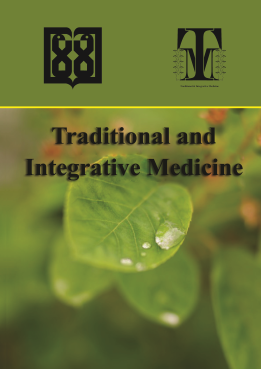The Probable Effect of “Abrus pulchellus subsp. cantoniensis (Hance) Verdc.” on COVID-19
Abstract
No Abstract.No Abstract.No Abstract.No Abstract.No Abstract.
Teschke R. Traditional chinese medicine induced liver injury. J Clin Transl Hepatol 2014;2:80-94.
Cheng YK, Chen Y, Wang L, Li M, Zhong LL. Study on the antibacterial activities of the ethanol extracts of Abrus cantoniensis. Res Pract Chin Med 2006;20:39-41.
Yao X, Li Z, Gong X, Fu X, Xiao X, et al. Total saponins extracted from Abrus cantoniensis Hance suppress hepatitis B virus replication in vitro and in rAAV8-1.3HBV transfected mice. J Ethnopharmacol 2020;249:112366.
Liao JC, Lin KH, Ho HY, Peng WH, Yao X, et al. Inhibitory effects of 87 species of traditional chinese herbs on nitric oxide production in RAW264.7 macrophages, activated with lipopolysaccharide and interferon-γ. Pharm Biol 2005;43:158-163.
Ni W, Yang X, Yang D, Bao J, Li R, et al. Role of angiotensin-converting enzyme 2 (ACE2) in COVID-19. Crit Care 2020;24:422.
Heidary F, Varnaseri M, Gharebaghi R. The potential use of persian herbal medicines against COVID-19 through angiotensin-converting enzyme 2. Arch Clin Infect Dis 2020;15(COVID-19):e102838.
Nathan S, Loewe M. Huang Ti Nei Chin. In: Early Chinese texts: a bibliographical guide. Berkeley and Los Angeles 1993; pp 196-215.
Wu S, Fu X, Brennan MA, Brennan CS, Chun C. The effects of different purifying methods on the chemical properties, in vitro anti-tumor and immunomodulatory activities of abrus cantoniensis polysaccharide fractions. Int J Mol Sci 2016;17:511.
| Files | ||
| Issue | Vol 7, No 2, 2022 | |
| Section | Letter to the Editor | |
| DOI | https://doi.org/10.18502/tim.v7i2.9914 | |
| Keywords | ||
| No Keywords | ||
| Rights and permissions | |

|
This work is licensed under a Creative Commons Attribution-NonCommercial 4.0 International License. |




